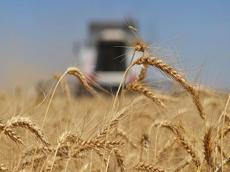|
|
TODAY.AZ / Business
Azerbaijan set to revive agriculture in liberated lands with latest Israeli agri-tech technologies
10 May 2022 [16:12] - TODAY.AZ

By Azernews
By Sabina Mammadli
An article by Al-Monitor discusses the transformation of Azerbaijan into a wheat exporter in the future and, consequently, Israel into its buyer.
Israel is not merely planning but is already preparing to provide practical assistance to Azerbaijan in achieving this goal, the report says.
“At this stage, Azerbaijan does not grow enough wheat for export, but the country is planning an enormous project to expand its wheat production. Upon completion, Azerbaijan will not only grow enough wheat for use at home, but it will also have enough for export. To move this project forward, Israel will provide Azerbaijan with the latest agri-tech technologies to cultivate wheat, with the goal of purchasing wheat from Azerbaijan as early as 2025,” the article noted.
In the backdrop of the world events, Azerbaijan, as a reliable partner to Israel, becomes the obvious choice for a wheat source.
In early April, Melioration and Water Management of Azerbaijan OJSC and the Israeli company Mekorot signed a document under which the Israelis will help Azerbaijan organize an efficient irrigation system, which will lead to a sharp increase in crop yields, including grain. Mekorot is in charge of the entire water supply and irrigation network in Israel and knows a lot about water management.
All issues will be discussed during the upcoming visit to Baku in the coming weeks by the Israeli Minister of Agriculture Oded Forer with a group of Israeli experts in agriculture. While wheat will be the main focus of their visit, they will discuss other things as well.
Recently, the Azerbaijani Agriculture Ministry has reported that 50,000 hectares have been sown with grain crops in the liberated territories of Azerbaijan this year and the harvest is expected to be high. The soils of the region are rich and with proper handling of the land, one can count on a good return. The only thing that still remains unresolved is the issue with irrigation. Work there is also underway.
President Ilham Aliyev stressed that irrigation work will become one of the main factors determining food security both for the liberated lands and for the entire country.
“As a result of the liberation of territories of Azerbaijan, we are now in the active phase of development of those lands with respect to infrastructure, including agricultural development. Because the agricultural potential in the liberated areas is really very impressive,” he said.
This year, it is planned to implement projects related to irrigation on the liberated lands. The liberated lands, especially Kalbajar, Lachin, Gubadli regions, have large water reserves.
Armenia’s three-decade occupation of Azerbaijani territories extensively damaged the ecosystem, wildlife, and natural resources in and around the occupied Nagorno-Karabakh region. Armenians also resorted to large-scale acts of ecological terror in regions they had to leave under the trilateral November peace deal that stipulated the return of Azerbaijan’s occupied territories.
After the occupation, 127,700 hectares of irrigated land, 34,600 hectares of vineyards and orchards, 1,200 km of the irrigation system, and 120,000 hectares of arable land came under the control of Armenia. Thousands of hectares remained non-irrigated and were practically withdrawn from economic circulation.
Good harvests of wheat, tobacco, grapes, cotton, vegetables, and fruits were gathered in the Karabakh and East Zangezur economic regions in pre-conflict times. It is known that before the conflict, the Karabakh region produced 15 percent of the wheat crop in the republic. With current technologies and opportunities, land productivity in the Karabakh and East Zangezur regions can be much higher.
URL: http://www.today.az/news/business/219897.html
 Print version
Print version
Connect with us. Get latest news and updates.
See Also
- 28 November 2024 [11:27]
Azerbaijan elected deputy chairman of OIC anti-corruption bureau - 27 November 2024 [15:43]
Azerbaijan reveals key agreements advancing the green economy at COP29 - 27 November 2024 [12:57]
Azerbaijan unveils 'Green Growth Portal' to accelerate green transition - 27 November 2024 [12:38]
bp announces new appointments in Azerbaijan-Georgia-Türkiye region - 27 November 2024 [12:03]
Azerbaijan, Lithuania to enhance cooperation in taxation - 27 November 2024 [11:26]
Azerbaijan Economy Minister jointly with Harvard University develop Green Growth Portal - 27 November 2024 [11:04]
US hails Azerbaijan’s active role in PfP and its ongoing commitment to NATO partnership - 27 November 2024 [10:00]
Results of Kazakhstan's participation in COP29 concludes in Astana - 26 November 2024 [14:45]
Azerbaijani, Nigerian NGOs ink memorandum of cooperation - 26 November 2024 [11:26]
Europe rejects groundless accusations against Baku: origin of Azerbaijani gas is completely transparent
Most Popular
 Baku and Washington return to crisis-free relations
Baku and Washington return to crisis-free relations
 French politics in all its squalor, lies and hypocrisy
French politics in all its squalor, lies and hypocrisy
 Turkish minister: Peace agreement btwn Azerbaijan, Armenia to ensure stability in Caucasus
Turkish minister: Peace agreement btwn Azerbaijan, Armenia to ensure stability in Caucasus
 Banana Parliament of the banana Country
Banana Parliament of the banana Country
 Kazakhstan intends to increase capacity of TM and North-South transit corridors
Kazakhstan intends to increase capacity of TM and North-South transit corridors
 Hikmet Hajiyev strongly condemns Politico for false claims on Azerbaijan's gas imports
Hikmet Hajiyev strongly condemns Politico for false claims on Azerbaijan's gas imports
 Azercell hosts panel discussion on "Role of Corporations in Driving Sustainability"
Azercell hosts panel discussion on "Role of Corporations in Driving Sustainability"
